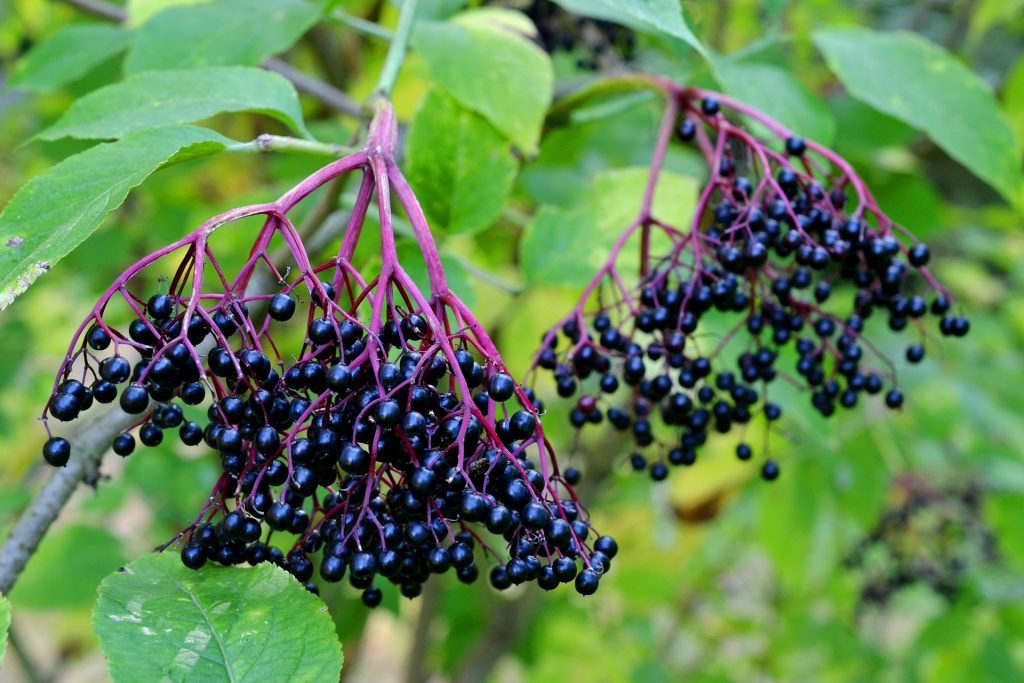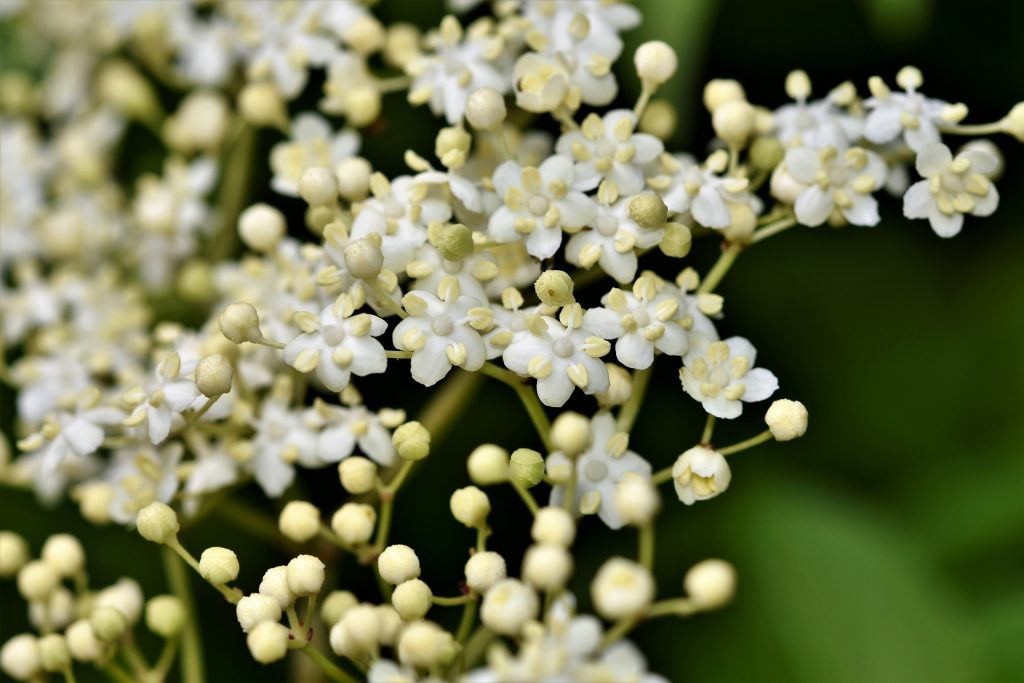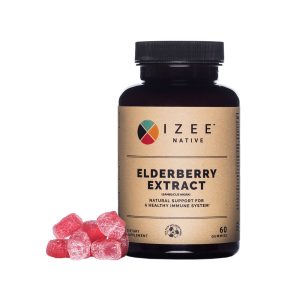Another beautiful summer has come and gone. Whether you are still hitting the trail with a few more layers, or snuggling up inside and embracing all things fall, that time of year is approaching for much needed natural immunity boosters. In this article you’ll read about the history of the elderberry tree, it’s uses, and how it can help you stay healthy and motivated through winter.
What is Elderberry?
Sambucus nigra, or Black elder, belongs to a family of flowering plants/shrubs native to Europe. You can also find it in many parts of North America. Usually you see elder standing in moist places: along riverbanks, roadsides, and moist woodland areas. The elder produces large clusters of small white flowers that bloom in late spring to early summer. The dainty little flowers then emerge as clusters of black, purple-blue, or red berries. These berries are packed full of nutrients!
History and Uses
Our herbal friend has enchanted humans for centuries From the “Father of Medicine” Hippocrates discovering its benefits in 400AD, to its uses by Native American tribes and people of Northern Africa, Asia, and Europe. The botanical name for Elder is Sambucus, which is from the Greek word Sambuca meaning wind instrument. The sambuke was a pan pipe enjoyed by the Romans and Greeks while some Native American tribes used elderberry branches to make flutes- calling it the “tree of music”. As the medicinal benefits are being rediscovered and studied today, the berries are turned in to syrups, jams, and medicinal wines, which you’ll often see around winter time when we need an extra immunity boost from our native plant friends.
Health Benefits
The best part. What can this supposedly historically rich and enchanting plant do for me?
1. High in Nutrients and Antioxidants
The berries are rich in flavonoids and antioxidants, which are capable of preventing cellular damage. These flavonoids also have special immune balancing, boosting, and antiviral effects. In addition, they have an anti-inflammatory effect on the respiratory system. Elderberries are also full of amino acids and a great source of vitamin A, vitamin C, iron, potassium, and vitamin B6.
2. May Improve Cold and Flu Symptoms
In one randomized study of 60 adults with flu-like symptoms, those who took 15 mL of the elderberry syrup four times a day saw symptoms clear up on average four days earlier than those who took a placebo syrup (1).
Another study tested its effectiveness in air travelers. Those who took the elderberry syrup had a shorter duration of cold symptoms, which were less severe than the control group (2).
3. May Improve Heart Health
Studies have shown elderberry juice may reduce the level of fat in the blood and decrease cholesterol. Also, since the elderberries are high in flavonoids, this can help reduce the risk of heart disease.
How to Consume Elderberry Extract
Lastly, if you’re out foraging for wild berries, you’re probably pretty awesome. Just be careful with elderberries because they need to be cooked before you eat ‘em. If eaten raw, they can make you sick. So to reap this plant’s health benefits, you can choose from taking it as a syrup, capsule, or gummy. I’ve been enjoying the sweet satisfaction in gummy form– making it easy to pop one on the go and achieve all my go-getting dreams.




